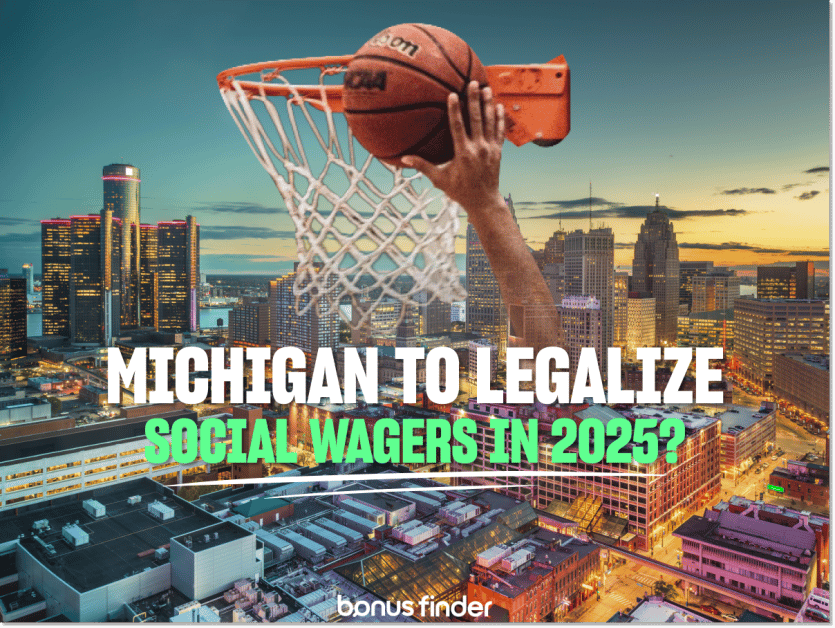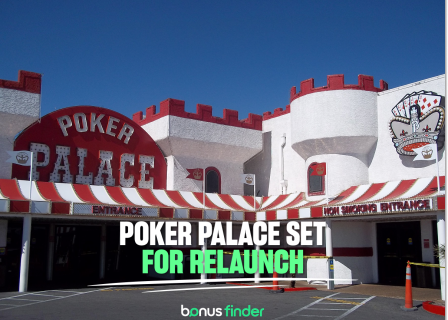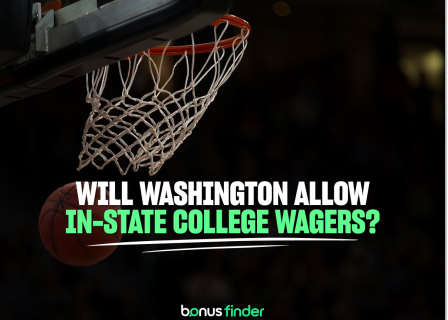Despite Michigan online casinos being legal, social casinos are not. Therefore, a new bill seeking to legalize social gambling in Michigan has been introduced by Senator Veronica Klinefelt. Titled Senate Bill 511 (SB 511), this motion proposes that certain instances of private social wagering are to be permitted under a revised penal code.
Sen. Klinefelt introduced the motion in early September, supported by seven dual-party backers — two Republicans, five Democrats.
If passed, SB 511 would allow social groups of up to 100 people to engage in private wagering.
However, the Wolverine State's longstanding anti-social gambling stance may prove a critical stumbling block…
What does 'social wagering' mean?
Social wagering is private, unregulated and informal gambling between individuals – either one-to-one or as part of a larger group.
As such, social betting is markedly dissimilar to traditional commercial gambling. Rather than being headed by an organization like FanDuel or DraftKings, this type of wagering is led by individual participants.
For example, social wagers may involve betting on private games, televised sports events or other outcomes tied to one's own personal relationships.
All forms of private gambling are currently illegal in Michigan – preventing friends and family from betting in a social, behind-closed-doors setting. Sen. Klinefelt's SB 511 proposal endeavors to quash that controversial prohibition.
What might change if SB 511 passes?
First and foremost, SB 511's passage would pave the way for legal social wagering among those in "bona fide social relationships." Essentially, this means that participants must hold a genuine social link to enter into private bets.
Understanding the need for some form of regulation, Sen. Klinefelt's bill is not without restrictions.
First, players may only wager up to $25 each – with a maximum of 100 participants permitted to contribute simultaneously. In total, this caps prize pools at $2,500.
Calls have been made in an effort to increase the $25 bet limit to $100, but as it stands SB 511 has not yet altered this stipulation.
One crucial factor separating Sen. Klinefelt's bill from commercial gambling is this: no single individual may benefit from the wager in any way other than winning. This is unlike retail and online gambling operators, who keep losing players' stakes.
Further, private wagers cannot be agreed on or placed in a public setting, such as bars, casinos, restaurants and other non-private establishments. By the same token, companies would be barred from advertising private wagers.
Although SB 511 loosens several pertinent restrictions, monetary penalties for provisional violations will increase from a $1,000 fine to $5,000 if it passes.
SB 511 to "legalize what everybody does all the time"
Speaking at a Senate Committee on Regulatory Affairs assembly, Sen. Klinefelt outlined that SB 511 is not plotting to modify how players bet, but to legalize something that "everybody does".
"With SB 511, its sole purpose is to legalize what we do every day, what everybody does all the time, bet their best friend $5 on a football game."
Pointing to the fact that her bill received bipartisan support, Sen. Klinefelt said: "There are individuals on both sides of the aisle who are interested in this (SB 511)."
Cross-party support does not translate to unmitigated progress, though – and SB 511 has been criticized from various corners…
Senators and casinos oppose Sen. Klinefelt's motion
While Senators Sue Shink, Jonathan Lindsey, Joe Bellino, Jeff Irwin, John Cherry, Rosemary Bayer and Sylvia Santana have all publicly backed SB 511, select vital individuals and entities are yet to be convinced by the proposal.
Senator Michael Webber disputed the need for Sen. Klinefelt's bill – arguing that law enforcement are unlikely to challenge private gambling in the first place.
In response, Sen. Klinefelt stated that although enforcement services do not typically punish private gambling as a misdemeanor, it remains an - unnecessarily - illegal act.
In addition to fault-finding from certain Senators, SB 511 is firmly in the cross-hairs of commercial and tribal betting establishments.
Casinos believe that SB 511 violates a 2004-enacted constitutional right, which requires a public vote to expand the state's gambling sector.
For Michigan's tribes - namely, the Nottawaseppi Huron Band of the Potawatomi and the Gun Lake Tribe - fears of potential negative implications represent a key issue.
In the face of these critiques, Sen. Klinefelt accepts that communication with concerned parties is necessary. The Democrat Senator also noted that she is open to liaising with those who are against SB 511 to build a "more comfortable" proposal for all.
What next for SB 511 in Michigan?
Full bill analysis concluded on September 17, and the Sen. Klinefelt-designed motion now hangs in the Senate Regulatory Affairs Committee chamber.
Pending potential changes, SB 511 is awaiting a vote on the Senate floor.
Potential hearings may take place before a vote – with anti-SB 511 groups potentially presenting cases against the social wagering measure.
Should SB 511 pass committee and Senate polls, it will then move to the House, where further debates, hearings and voting shall be held. In the event that the proposal is successful at the House level, it will be sent to Governor Gretchen Whitmer's desk for signing into law.
Social wagering in Michigan: Banned in 1931, legal in 2025?
Michigan lawmakers outlawed social gambling in 1931 as part of a broader federal effort to prohibit unregulated, crime-related betting.
However, with limited data on tangible crime tied to private wagering in Michigan, the ratification of Penal Code 328 (Michigan's anti-social wagering law) was largely considered a moral deed.
And, as suggested by Sen. Klinefelt, Michigan citizens regularly partake in fair social gambling today: "People do March Madness and Super Bowl squares with their friends, nobody is making any money."
Whether SB 511 advances through the Michigan legislature likely depends on lawmakers' reverence for a rule implanted almost one century ago.
More pertinently for players, will residents welcome potentially stronger enforcement for private gambling over the currently illegal, but ignored, framework?









